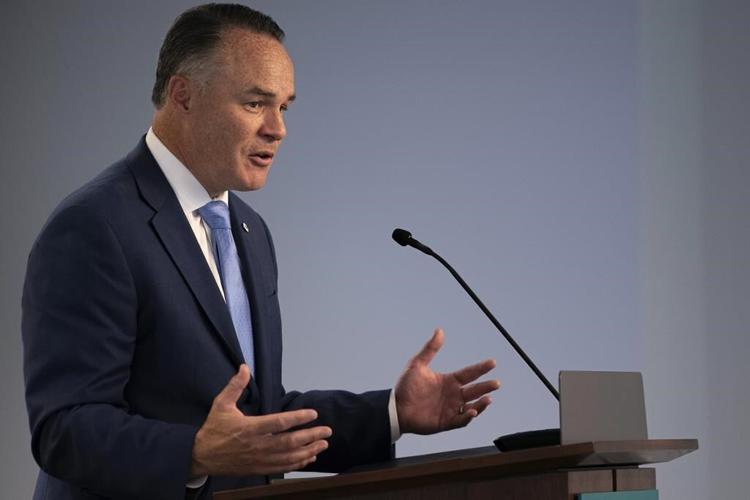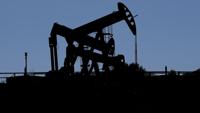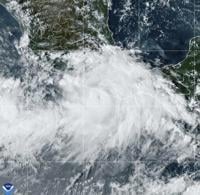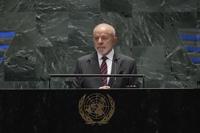WASHINGTON (AP) — Fifty years after the 1973 Arab oil embargo, the current crisis in the Middle East has the potential to disrupt global oil supplies and push prices higher. But don't expect a repeat of the catastrophic price hikes and long lines at the gasoline pump, experts say.
The Israel-Hamas war is “definitely not good news” for oil markets already stretched by and expected stronger demand from China, the head of the International Energy Agency said.
Markets will remain volatile, and the conflict could push oil prices higher, "which is definitely bad news for inflation,” Fatih Birol, executive director of the Paris-based IEA, told The Associated Press. Developing countries that import oil and other fuels would be the most affected by higher prices, he said.
International benchmark Brent crude closed at $93 a barrel on Friday, up from $85 on Oct. 6, the day before Hamas attacked Israel, killing hundreds of civilians. Israel immediately launched airstrikes on Gaza, destroying entire neighborhoods and killing hundreds of Palestinian civilians in the days that have followed.
Fluctuations since the attack pushed oil prices as high as $96.
The price of oil depends on how much of it is getting used and how much is available. The latter is under threat because of the Hamas-Israel war, even though the Gaza Strip is not home to major crude production.
One worry is that the fighting could lead to complications with Iran, home of some of the world’s largest oil reserves. Its crude production has been constrained by international sanctions, but oil is still flowing to China and other countries.
“In order to get a sustained move (in prices), we really would need to see a supply disruption,” said Andrew Lipow, president at Lipow Oil Associates, a Houston-based consultant.
Any damage to Iranian oil infrastructure from a military strike by Israel could send prices jumping globally. Even without that, a shutdown of the Strait of Hormuz that lies south of Iran could also shake the oil market because so much of the world’s supplies goes through the waterway.
Until something like that happens, “the oil market is going to be like everyone else, monitoring the events in the Middle East,” Lipow said.
One reason 1970s-style gas lines are unlikely: U.S. oil production is at an all-time high. The U.S. Energy Information Administration, an arm of the Energy Department, reported that American oil production in the hit 13.2 million barrels per day, passing the previous record set in 2020 by 100,000 barrels. Weekly domestic oil production has doubled from the first week in October 2012 to now.
“The energy crisis of 1973 taught us many things, but in my mind, the most critical is that American energy strength is a tremendous source of security, prosperity and freedom around the world,'' said Mike Sommers, president and CEO of the American Petroleum Institute, the U.S. oil industry's top lobbying group.
In a speech Wednesday marking the 50th anniversary of the 1973 oil embargo, Sommers said current U.S. production contrasts sharply with “America’s weakened position during the Arab oil embargo.'' He urged U.S. policymakers to heed what he called the lessons of 1973.
“We cannot squander our strategic advantage and retreat on energy leadership,'' said Sommers, who has repeatedly criticized President Joe Biden's policies restricting as part of Biden's efforts to
“With an unstable world, war in Europe, war in the Middle East, and energy demand outstripping supply, energy security is on the line,'' Sommers said in a speech at the Hudson Institute, a Washington think tank.
“American oil and gas are needed now more than ever,'' Sommers said. “Let’s take to heart the lessons we learned from 1973 and avoid sowing the seeds of the next energy crisis.''
For now, the crisis isn’t a repeat of 1973. Arab countries aren’t attacking Israel in unison, and OPEC+ nations have not moved to restrict supplies or boost prices beyond a few extra dollars.
There are several wild cards in the energy market. One is the supply of Iranian oil. Eager to avoid a spike in gasoline prices and inflation, the U.S. has quietly tolerated some exports of Iranian oil to destinations such as China instead of going all in on sanctions aimed at Iran’s nuclear program.
If Iran, which has warned Israel not to undertake a ground offensive, escalates the Gaza conflict — including a possible attack by Hezbollah militants in Lebanon supported by Iran — that might change the U.S. stance. “If the U.S. were then also to enforce the oil sanctions against Iran more strictly again, the oil market would tighten noticeably,” say commodities analysts at Commerzbank.
A shake went through the oil market Wednesday after Iran’s foreign minister called on Muslim nations to launch an oil embargo on Israel, but prices soon ebbed.
U.S. lawmakers from both parties, meanwhile, have urged Biden to block Iranian oil sales, seeking to dry up one of the regime’s key sources of funding.
Another wild card is how Saudi Arabia would respond if Iranian oil is restricted. Oil analysts say that while the Saudis may welcome recent oil price hikes, they don’t want a massive price spike that would fuel inflation, higher central bank interest rates and possible recession in oil-consuming countries that ultimately would limit or even kill off demand for oil.
A third unknown is whether more oil will reach the market from Venezuela. The U.S. agreed Wednesday to on the country’s oil, gas and gold sectors after Venezuela’s government and a faction of its opposition formally agreed to work together on election reforms.
Venezuelan production could increase in 2024. In the next six months, however, production could ramp up by some 200,000 barrels a day, a relative drop in the ocean, according to Sofia Guidi Di Sante, senior oil market analyst at Rystad Energy.
Wyoming Sen. John Barrasso, the top Republican on the Senate Energy and Natural Resources Committee, slammed the U.S. action as a “gimmick” that appeases a brutal regime in Venezuela.
“Joe Biden’s energy policies put America last,'' Barrasso said, citing the Democratic president's decisions to kill the controversial Keystone XL oil pipeline and sell off taking it to its lowest level since the 1980s. The Energy Department said Thursday it will seek offers to start refilling the oil reserve in December, with monthly solicitations expected through May 2024.
“He eased sanctions on Iran, which funds terrorism across the Middle East. Now with Israel under attack, Biden is desperate for anything to mask the consequences of his reckless policies,'' Barrasso said. “America should never beg for oil from socialist dictators or terrorists.''
The Treasury Department says it has targeted nearly 1,000 individuals and entities connected to terrorism and terrorist financing by the Iranian regime and its proxies, including Hamas, Hezbollah and other groups in the region.
"We will continue to take action as appropriate to counter Iran’s destabilizing activity in the region and around the world,” Treasury said in a statement.
____
McHugh reported from Frankfurt, Germany. Choe reported from New York.












































